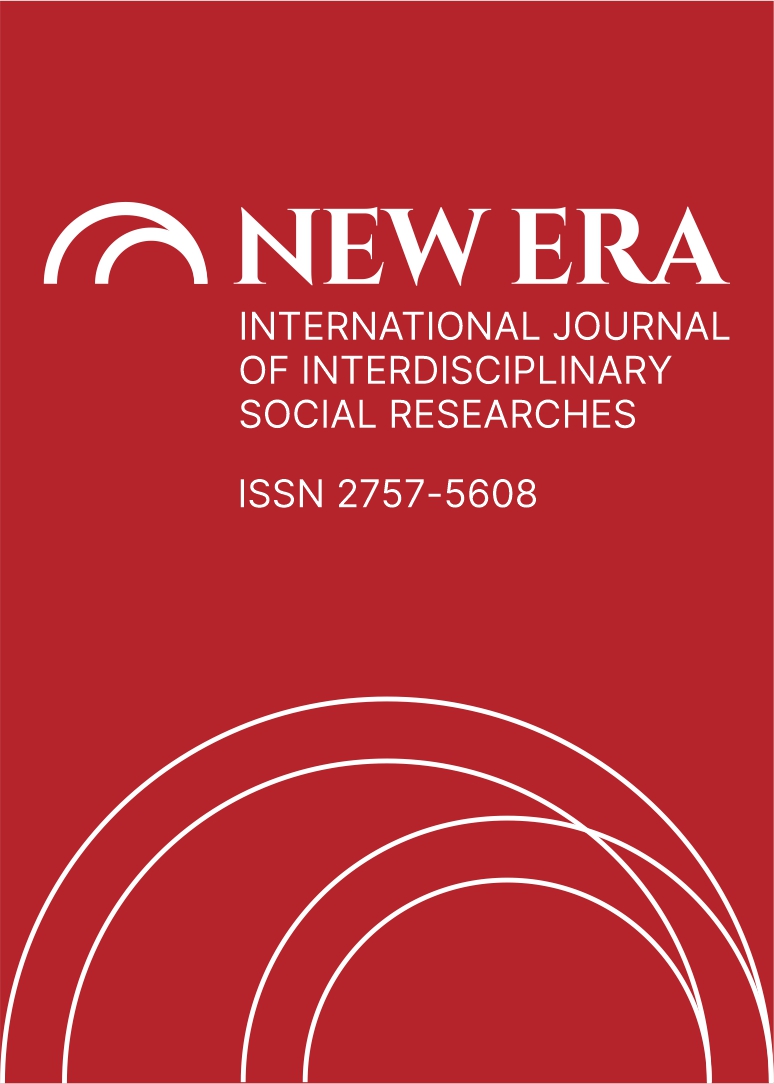AN EVALUATION ABOUT MEHMED AKIF'S STATUS FROM WRITTEN ABOUT THE PHASE OF VOLUNTEER EXPORT
DOI:
https://doi.org/10.5281/zenodo.7441876Keywords:
Mehmet Akif Ersoy, sürgün yılları, hakkında yazılanlarAbstract
Mehmet Akif Ersoy is known for his support to the Independence Struggle during the difficult times of the National Struggle. The poem written by the poet for the heroism of Çanakkale before the National Struggle reveals his power to describe the national and spiritual feelings and the victory. The process that led Mehmet Akif to become a poet of independence is also the process of struggle against the invading forces within the country. In order for the National Struggle movement to be successful, Mehmed Akif invited the people to support the struggle with his sermons in mosques, using all his historical, literary and religious knowledge. The influence of Mehmet Akif's sermons in the support of the National Struggle by intense participation within the country is extremely high. In the most depressed times of the War of Independence, the proposal to write a national poem was also conveyed to Mehmet Akif, based on the idea of keeping the morale of the soldiers at the front high, but Akif stated that he could not write poetry because of the money prize involved. There was a wide participation in the competition, in which Mehmet Akif did not enter in this way. The number of those who sent poems to the competition is over seven hundred. However, none of these participants' poems are capable of reflecting the spirit of the National Struggle. In the face of this situation, when it is guaranteed that he will not receive the money prize if he wins the competition, Mehmet Akif decides to write a poem and his poem won the competition and was read in the Parliament and received a standing ovation. Thus, the National Anthem, which found its meaning from the pen of Mehmet Akif, became the national anthem of the National Struggle and the Republic of Turkey after the victory. Due to the adoption of the new constitution in the first two years of the Republic and some ideological changes, Mehmet Akif Ersoy leaves his beloved country and goes to Cairo, the capital of Egypt, where he will spend eleven years of his life. This departure is actually a choice of voluntary exile. Besides the political reasons that compelled Mehmet Akif to leave Turkey, the writings of some pencils should not be ignored. In this study, evaluations will be made about the poet's stance against these writings by giving examples from what was written about Mehmet Akif in Turkey during the voluntary exile phase.
References
Abdulkadiroğlu, Abdülkerim – Nuran, (1987). Mehmet Âkif Ersoy’un Makaleleri (Sırat-ı Müstakim ve Sebilürreşad Mecmuaları’nda Çıkan), Kültür ve Turizm Bakanlığı Yayınları, Ankara.
Cündioğlu, Dücane, (2005), Âkif’e Dair, İstanbul: Kaknüs Yay.
Badıllı, Abdülkadir (1990). Bediüzzaman Said-i Nursi Mufassal Tarihçe-i Hayatı, İstanbul: Timaş Yay.
Bilgi, Levent, Mehmed Âkif’in Vefası, Mehmed Âkif’e Vefasızlık, Harran İlahiyat Dergisi Harran Ilahiyat Journal Sayı/Issue: 47, Haziran/June 2022, 185-208
Çantay, H. B. (1966). Âkifnâme (Mehmed Âkif), İstanbul: Ahmed Sait Matbasaı.
Düzdağ, M. E. (2003). Mehmed Âkif / Mısır Hayatı ve Kur’an Meâli. İstanbul: Şule Yay.
Eşref Edib (Fergan), (1381–1962), Mehmet Âkif Hayatı-Eserleri ve Yetmiş Muharririn Yazıları, C. I, Sebilürreşad Neşriyatı, İstanbul.
Kalyon, Abuzer, Mehmed Akif Ersoy’un Mısır Günleri, 80 Yıl Sonra Mehmed Akif Ersoy, TYB Yay. Ankara: 2017
Mumcu, Uğur (1995). Kâzım Karabekir Anlatıyor, İstanbul: Tekin Yay.
https://www.nazimhikmet.org.tr/nazim-hikmet/davalari/ (erişim:23/12/2021).
https://10layn.com/sabiha-sertel/ (erişim:12/02/2022).
https://tunahan.org/hayati/kronoloji/ (erişim: 15/07/2022).
Downloads
Published
How to Cite
Issue
Section
License
Copyright (c) 2022 NEW ERA INTERNATIONAL JOURNAL OF INTERDISCIPLINARY SOCIAL RESEARCHES

This work is licensed under a Creative Commons Attribution-NonCommercial 4.0 International License.


